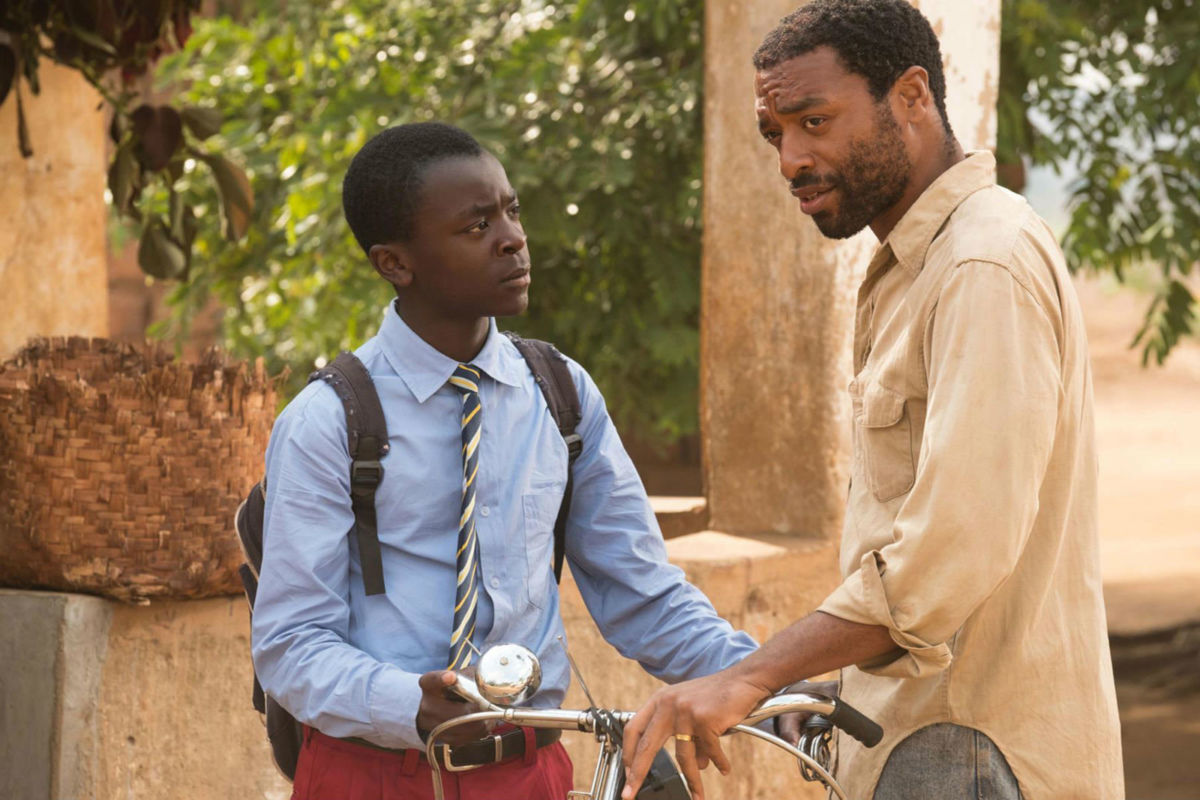If you ever needed a lesson on the importance of free education, look no further than The Boy Who Harnessed the Wind. Based on the true story of a young boy who built a wind turbine in his family’s village based upon knowledge he learned in his school’s library, Chiwetel Ejiofor’s debut feature is a rousing testament to the ingenuity of the human spirit.
The people of Wimbe in Malawi have always relied on the soil; both for food and for money. At the behest of the seasons, they need just the right amount of rain to ensure a successful crop. So when the trees, which are needed to protect against flooding, are uprooted by a local tobacco company, their crop is spoiled by rain. This is particularly troubling for William Kamkwanba (Maxwell Simba), who has just started at high school, as his parents no longer have enough money to pay for his fees. To make matters worse, Malawi has also sold all of its excess crop to Mozambique and Kenya, meaning that there are few reserves for the incoming fallow period. Facing a potential famine due to a lack of rain, William finds inspiration by the light of his schoolteacher’s bicycle, powered by the turning of the wheel itself.
He finds his main adversary in his own father, Trywell Kamkwamba (Chiwetel Ejiofor). The British actor excels here, able to convey both pride and vulnerability within the same facial expression. Their conflict reflects the changing times of a nation in the throes of rapid modernisation. Trywell’s own father used to pray for rain during dry seasons, something he vowed to his wife that he would never do. Yet at the same time he finds it hard to change his ways, constantly digging trenches in rock-hard ground to no real avail. This is where the heart of the story is located, as Trywell slowly acquiesces to his son’s visionary idea.
Coming at a time when we need the power of science to adapt to multiple impending environmental catastrophes, William’s simple solution-based approach is needed more than ever. It’s only a shame that The Boy Who Harnessed The Wind never gets into the nuts and bolts of wind-turbine-making. Given the didactic nature of the story, it wouldn’t have hurt to get more insight into how the thing actually works.
Still, it follows a recent trend in big-budget Africa-set co-productions (The BBC, BFI Film Fund and Blue Sky Films all contributed funding, among others) where the focus is completely on African themselves, success based upon overcoming internal adversity instead of relying on foreign aid. Like Queen of Katwe, the ultimate goal is not escape or marriage or finding help from outside, but using your own skills to lift yourself out of poverty. It provides a blueprint to success that can easily be replicated in small villages across the world.
The broader message rings loud and clear: a society without free education is a society doomed to fail. How many potential Williams are there who cannot succeed because they couldn’t afford education? On an even darker note, how many people have needlessly died because they never learned the basics of science? While stylistically the film is nothing to sing about (despite some lovely cinematography courtesy of Dick Pope) its larger themes make it an essential educational work. Expect this to be a classic film for the last week of school.
Some of the coverage you find on Cultured Vultures contains affiliate links, which provide us with small commissions based on purchases made from visiting our site.

